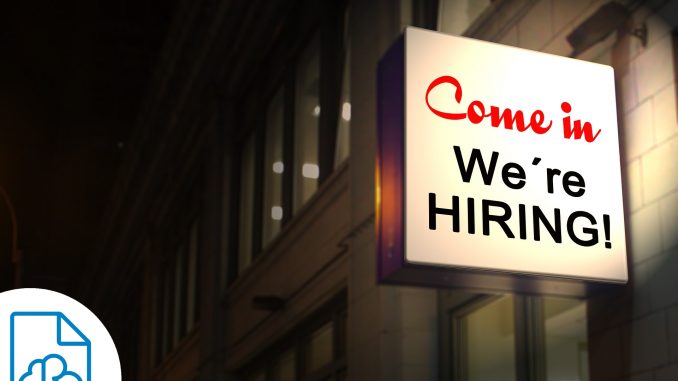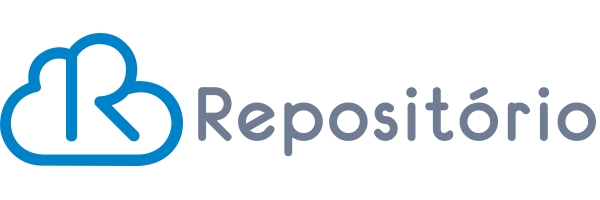
In the previous part I have talked about what to do when an interview has been scheduled. In this post, I will discuss a little bit about the interview itself.
The Interview
Early on, it is necessary to make one thing very clear: a selection process is in fact an eliminatory process and an interview is part of that. As the name implies, an eliminatory process is meant to eliminate.If it is not clear yet, there you go: the whole idea of such a process is to eliminate as many candidates as possible, with only the chosen finalist remaining.
The Interviewer is not a benevolent entity.
Therefore, the interviewer is not there for the purpose of approving the majority of the candidates. On the contrary, on the ideal interview scenario he or she will be able to eliminate all candidates except one, and that is the one who will land the job. It might seem quite obvious, but I guarantee that several candidates have already left an interview complaining about the interviewer’s matter-of-factness, indifference or iciness. That said, it is good to understand a little bit better what exactly an interview is all about, in order to not fall into the group of ruled-out candidates.
The interview can even be a formal conversation or a friendly chat. However, irrespective of its informality or pleasant tone, it is something very well structured.
Dissecting an Interview
In order to better understand how to answer a question and, most importantly, when to answer it, it is good to know that an interview has some typical phases.
Do not rush your answers.
When presenting his or her knowledge, a desperate candidate will mix aspects of the profile with those of the knowledge and also tangle it all up with the experience. Observe what I wrote in my post “Take Your Rest Seriously”:
Me: Do you like this activity?
Candidate: I have never worked with it.
Me: I have not asked you that. I have asked if you think it is interesting.
In other words, I was trying to find out about the profile and the candidate talked about his or her experience. The more experienced the interviewer is, the clearer such phases will become for the candidate. The interviewer will categorize what he or she gathered during the interview for future comparison among candidates. So, I use to list the following phases in an interview:
- Profile Survey
- Career History
- Knowledge Survey
- Challenges
In the following sections, I’ll try to explain each of those phases as well as their objectives.
Profile Survey
To survey a person’s profile is, basically, to evaluate the individual behind the professional. People spend a huge part of their lives at work, so it is important to know a little bit more about the candidates as human beings, and their personal lives as well.
Interviewers often ask general questions. As an interviewer, for example, I have never considered in detail the candidate’s answers as long as nothing destructive or alarming was detected, such as bad mood, lack of interest, or excessive use of some narcotic (not all drugs are illegal: alcohol, for instance). I also take into account whether the candidate has something that would prevent him or her from working hard, such as laziness.
The interviewer does not want details of the candidate’s life.
I believe that some candidates prefer to keep their privacy. Sometimes, trying to be kind, the interviewer can pose the wrong question, or say something that is interpreted in a way that wasn’t originally intended.
The candidate should not answer any personal questions if he or she doesn’t feel comfortable with the response.
During the profile survey, interviewers will ask about a variety of things. All these questions should be answered with as much honesty as possible, but without full candor. Interviewers know that nobody is perfect, that is to say, the candidate should tell the truth according to his or her convenience. Remember that the candidate will make the interviewer’s life easier by eliminating himself or herself from the selection process.
In my post Take Your Rest Seriously, I give a good example of a question:
What is your major weakness?
- Perfectionist
- Super focused
- Workaholic
I don’t know the worst between the first two, but I do know the worst out of those 3, and it is: to be workaholic.
The candidate should expect questions on how he or she reacts under pressure, what an ideal workplace looks like, etc, and can also count on being exposed to some kind of paradox. Anyway, there are several questions the interviewer can ask to analyze the candidate’s profile and to find out his or her mindset.
Finally, as it has been said, the spiel at this point should be adjusted to show the candidate at his or her best, and some candidates may unintentionally mislead by “adding a point to the story”, it is worth reinforcing:
Don’t lie!
Career History
Nowadays, most job interviews feature the resume (either in paper, in a PDF, or online) as the base for reviewing the candidate‘s career history. The idea in this interview phase is to assess the candidate’s experience to later correlate it with his or her knowledge, and to finally determine his or her proficiency.
The candidate should focus on showing his or her abilities instead of the time spent in each function.
Just recapping:
Proficiency measures how much ability the candidate has to perform a task.
The interviewer will either ask details about the companies, or ask the candidate to tell his or her story.
Don’t complain about previous jobs.
A resume is not an oath under Supreme Court, so it is totally understandable that the candidate might hide highly negative and disturbing experiences. Honesty is always essential. However, excessive candor can be harmful. In such cases, only answer when asked.
It’s worth knowing in advance that the vast majority of interviewers will ask, at least, the reason why the candidate is there. If he or she is currently employed, this question may be asked in different ways (not mutually exclusive, all may happen):
- Why do you want to leave your current job?
- Why do you want to join “this” company?
- Why do you want this job position?
If the candidate is unemployed, the first question will be slightly modified so that the interviewer will try to understand why the candidate has either been fired, laid off, made redundant or resigned.
Be prepared to explain the reason why you would want to work for this new company.
Curiously, a failure is not a disturbing experience: if the candidate was a bad employee, that fact may be the catalyst for his or her regret and subsequent will to improve. However, the lessons learned are more related to the candidate’s knowledge than his or her history.
Knowledge Survey
At some point, the Interviewer will ask the candidate about all the knowledge that he or she has that is relevant to the job position in question. If the candidate has a portfolio, this is the moment to show all his or her preparation work, and make it very clear that he or she is the most qualified candidate for the job. However, many candidates, developers in particular, make a mistake of thinking like a technocratic, and even with contempt towards the interviewer when he or she works in another area:
The candidate should not try to show that he or she knows more than the interviewer.
The candidate should expect questions about successful and failed projects as well as the lessons learned from them. Common questions for knowledge survey address which technologies the candidate has worked with, which tools he or she knows, or how he or she remains up-to-date.
The candidate should make it clear that he or she appreciates being up-to-date as well as demonstrate how this is accomplished.
Challenges
It is not uncommon for interviewers to propose some sort of challenge to the candidate. A good option is to apply a qualifying examination, in which the candidate takes a brief knowledge test.
Some candidates consider these tests a bit offensive, but they shouldn’t. According to the book Mythical Man-Month, it is ridiculous to hire a juggler without seeing his or her performance beforehand. And the author also states that those pre-employment tests are a great means to assessing someone’ knowledge.
Don´t be ashamed to conclude that a job opportunity you considered promising is, in fact, inappropriate.
Candidates who claim to speak a foreign language should be willing to be interviewed in that language. Other challenges may be logical reasoning tests (or even psychometric tests), deduction tests, coordination tests, etc.
The Selection Process
Each interview is, in fact, part of a selection process. In this post, I describe it in a way that suggests a single meeting with a single interviewer covering all the topics. It is not necessarily so: some selection processes break down an interview in several meetings, sometimes with more than one interviewer, in which the various steps are performed.
A Little Bit of Etiquette
Interviewers will ask if the candidate has studied the company whose job opportunity he or she has applied for. In Part II, that has already been covered. Also, it is, at the very least, embarrassing if the candidate does not know what he or she did in a particular company, or indeed struggles to explain it. A good portfolio helps in avoiding such a situation, and the same goes for the career history and his or her narrative.
There is only one part left to cover, probably the interview’s final part, when the interviewers give space so that the candidate either adds or asks something. There is nothing more disrespectful than a candidate who does not prepare for an interview.
Very few candidates have something to add. Add something to differentiate yourself.
If the candidate has prepared for the interview according to Part II recommendations, he or she will certainly have something to add. However, the development is a social activity and this socialization begins at the interview. In the following paragraphs, I will give some more general tips to assist candidates:
Be very polite if you feel the need to correct the interviewer.
Tip 37:
Avoid getting into unproductive discussions.
Tip 38:
Save both your time and the Interviewer’s. If an answer causes your elimination from the process and that answer is the truth, assume the elimination.
Tip 39:
Stick to protocol and remain polite and respectful, no matter what.
A final tip on etiquette, which, amazingly, I actually have to include because of the crazy things that I have either witnessed or learned:
Be well-groomed, well-dressed and rested..
The Candidate as a Whole
For candidates who have attentively followed this post as well as the previous one, it might be possible to simplify the interview process and split it in two parts for development jobs; one personal part (as human beings, not in the private sense of the word) and the technical side. I believe that, for those who like the development activities, the technical part is the easiest one. Yet the personal part has been a great challenge. Right?
No, not at all.
The candidate is an individual. Qualities and defects naturally lie within everything that person is.
Technical interviewers tend to neglect the personal aspect. HR teams, including most head-hunters, tend to ignore the technical part, mostly because of their lack of specific knowledge. The good candidate should be properly prepared for both cases.
If the candidate has a well-prepared career narrative and a well-prepared portfolio, if he or she has studied the company and has given some thought to the questions that might be asked, then the odds that his or her interview will go well will increase substantially.
The candidate should know that ALL of his or her actions are under evaluation.
The candidate with the best skill set gets the job!
In the next part, I have some tips regarding what the candidate should do while waiting for the results of the interview.





